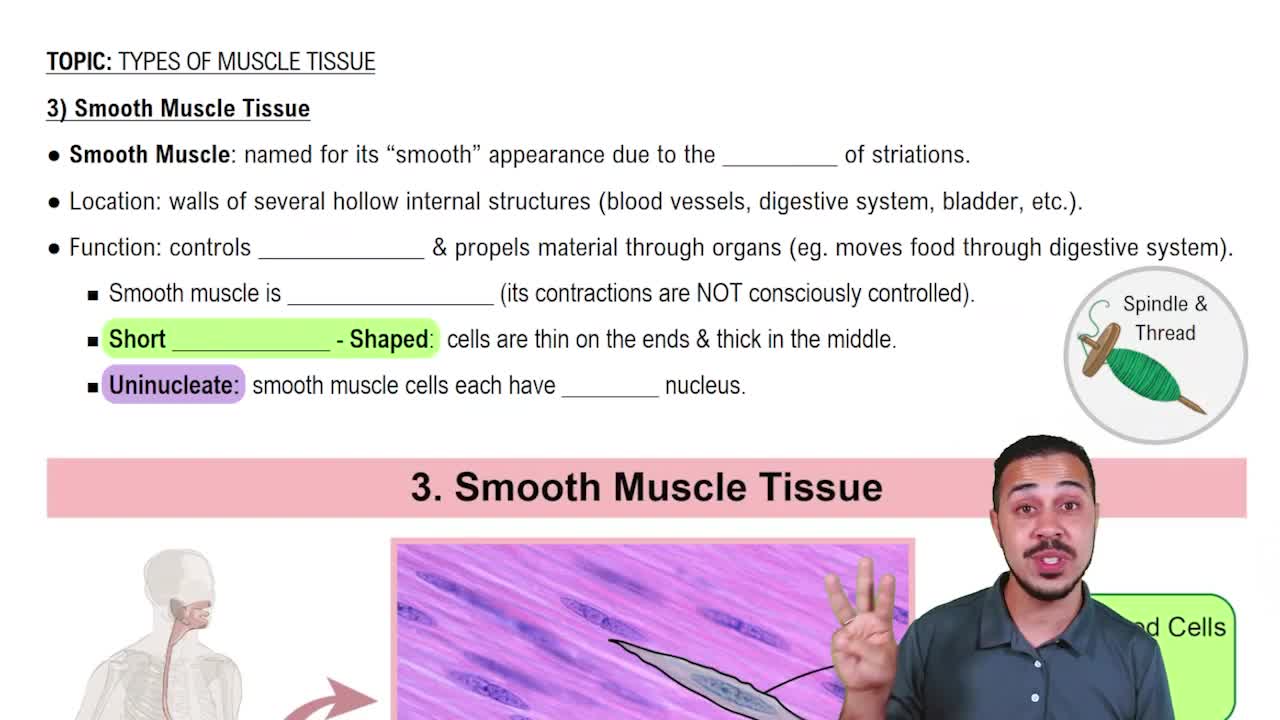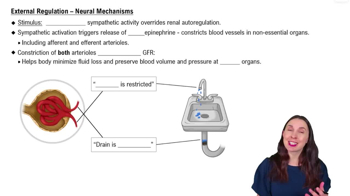Normal urine should have which of the following properties? Circle all that apply.
a. Translucency
b. Yellowish pigment
c. Cloudy appearance
d. pH less than 4.5
 Verified step by step guidance
Verified step by step guidance Verified video answer for a similar problem:
Verified video answer for a similar problem:



 4:3m
4:3mMaster The Filtration Membane with a bite sized video explanation from Bruce Bryan
Start learning